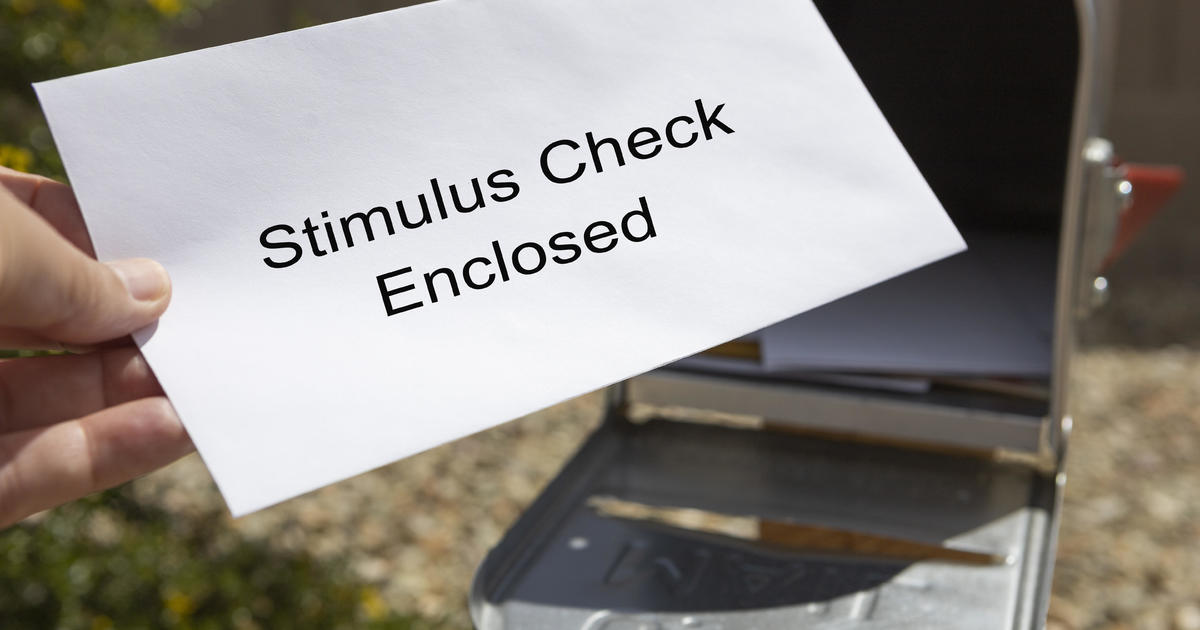The IRS has a message for people still waiting on federal stimulus payments: The money is already out the door.
The tax agency said this week that it has sent more than 160 million checks — $1,200 for adults and $500 for children — directed by the Coronavirus Aid, Relief and Economic Security (CARES) Act, which represented the first round of stimulus payments sent to most U.S. households. Starting in December, it also sent more than 147 million payments for the second round of checks, which offered $600 for each eligible adult and child.
To be sure, Congress is currently negotiating another round of stimulus aid, which could direct a third check to eligible households. If that $1.9 billion relief effort is passed by lawmakers, it could be signed into law by President Joe Biden by the end of March, Wall Street analysts say. In that case, the IRS would be authorized to distribute a third round of checks. So far, the tax agency has been authorized to send two rounds of checks — and it said that all those payments have been mailed or deposited into bank accounts.
Altogether, the IRS has disbursed more than $410 billion in so-called Economic Impact Payments, emergency relief to help tide people over during the pandemic, to U.S. households since April. Yet while those checks have been delivered to most eligible individuals, the IRS has struggled to reach some of the most financially vulnerable Americans, such as those who lack bank accounts or who don't earn enough money to file tax returns.
Those issues have complicated stimulus check distribution because the IRS is relying on a person's most recent tax return to determine whether they are eligible for the payments, as well to determine where to send the money.
"That was a big problem — those people who do qualify but didn't file a return," and so aren't on the IRS' radar, said Jody D'Agostini, a certified financial planner with Equitable Advisors. Some of the people who missed out are those that are likely to need the stimulus money the most, she added.
While the IRS said all checks have been issued, it added that some checks could still be in the mail. And if you haven't received either or both stimulus payments — or didn't receive the correct amount — you'll have another chance to claim the money when you file your 2020 tax return, according to the agency.
"If individuals didn't receive a payment — or if they didn't receive the full amounts — they may be eligible to claim the Recovery Rebate Credit and must file a 2020 tax return," the tax agency said in a statement.
That could happen if someone's income dropped in 2020, as experience by the millions of Americans who were furloughed or lost their jobs last year. "Some people didn't qualify through their 2018 and 2019 tax returns but then had a horrendous 2020 and they didn't get the check, but they were really eligible," D'Agostini said. Those people can claim the payment by filing a 2020 tax return.
"Financial distress"
The IRS has come under fire from some critics over its distribution of the stimulus payments, with National Taxpayer Advocate Erin M. Collins calling out the agency for not ensuring that checks reached all eligible people. Households that failed to receive their checks "are likely experiencing financial distress now," Collins wrote in a report to Congress last month.
In her view, taxpayers shouldn't have to wait to file their 2020 tax returns in early 2021 to get their payments. Unfortunately for those who missed out, the IRS isn't offering another option for now. It said that people who either missed a payment or didn't receive the correct amount will need to wait until they file their 2020 tax returns to claim the extra money.
How to claim your stimulus money
The first step is to figure out how much in missing stimulus payments you'll need to claim on your 2020 tax returns.
The IRS, which began accepting tax returns on February 12, calls the checks "recovery rebate credits" on its tax forms. That's because, technically, the payments were actually tax rebates paid in advance of filing your taxes. Most taxpayers have until April 15 to file their taxes, although the IRS on February 22 said Texas residents will receive another two months to file, due to the winter storms that battered their state.
To help determine if you are owed more, the IRS published a Recovery Rebate Credit worksheet, which asks questions about eligibility (such as your income) and how much you received in the two stimulus checks so far. If you find that you are owed more, you can enter the amount on line 30 on IRS Form 1040.
If you don't recall how much you received in the first two rounds of stimulus payments, you can create or view your account at the IRS website. Extra stimulus money will be included with your tax refund. Most taxpayers will receive their refund within 21 days, according to the tax agency.
With Congress now working on a third relief package, millions of households could receive a third stimulus check within the next several weeks, which happens to fall in the middle of tax filing season.
People who lost income in 2020 or who had a baby last year may want to file their taxes as soon as possible to ensure they receive the correct amount in their next stimulus check. Otherwise, the IRS could rely on your 2019 tax returns to determine eligibility.
If that happens, people may have another wait ahead of them until they can update their information with the IRS and claim their extra stimulus money.
This article was originally published By Aimee Picchi, cbsnews.com.










